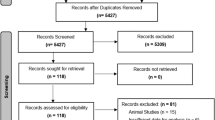Abstract
The research is to investigate the association between plasma concentrations of total and high-molecular-weight (HMW) adiponectin and risk of early and advanced colorectal cancer. One hundred and sixty-five male colorectal cancer patients and one hundred and two controls were enrolled; based on the T factor of the TNM system, intraepithelial carcinoma and submucosally invasive carcinoma were defined as early cancer, and invasion into the muscularis propria or deeper was defined as advanced cancer. The plasma levels of glucose, fasting insulin, total cholesterol, triglyceride, and total and HMW adiponectin levels were measured. Each factor level was designated as low or high, and the risk of cancer was estimated by univariate and multivariate logistic regression analyses. In the patients with early cancer, high waist/hip ratio (WHR), high fasting insulin, high HOMA model insulin resistance index (HOMA-IR), low total adiponectin and HMW adiponectin were all associated with a significant increase in the odds ratio (OR) by univariate analysis. In multivariate analysis, WHR, HOMA-IR, total adiponectin and HMW adiponectin were all related to increased cancer risk. However, in the patients with advanced cancer, only low HMW adiponectin was associated with a significant increase in the OR by univariate analysis. In multivariate analysis, a low HMW adiponectin level was still related to increased cancer risk, with an adjusted OR of 3.971 (P = 0.036). In conclusion, a decreased level of adiponectin was a strong risk factor not only for early colorectal cancer but also for advanced colorectal in Chinese male patients. HMW adiponectin might be more closely associated with colorectal cancer risk than total adiponectin.
Similar content being viewed by others
References
Li M, Gu J. Changing patterns of colorectal cancer in China over a period of 20 years. World J Gastroenterol. 2005;11(30):4685–8.
Calle EE, Kaaks R. Overweight, obesity and cancer: epidemiological evidence and proposed mechanisms. Nat Rev Cancer. 2004;4(8):579–91.
Fasshauer M, Paschke R. Regulation of adipocytokines and insulin resistance. Diabetologia. 2003;46(12):1594–603.
Tschritter O, Fritsche A, Thamer C, Haap M, Shirkavand F, Rahe S, et al. Plasma adiponectin concentrations predict insulin sensitivity of both glucose and lipid metabolism. Diabetes. 2003;52(2):239–43.
Diez JJ, Iglesias P. The role of the novel adipocyte-derived hormone adiponectin in human disease. Eur J Endocrinol. 2003;148(3):293–300.
Barb D, Williams CJ, Neuwirth AK, Mantzoros CS. Adiponectin in relation to malignancies: a review of existing basic research and clinical evidence. Am J Clin Nutr. 2007;86(3):858–66.
Shetty GK, Economides PA, Horton ES, Mantzoros CS, Veves A. Circulating adiponectin and resistin levels in relation to metabolic factors, inflammatory markers, and vascular reactivity in diabetic patients and subjects at risk for diabetes. Diabetes Care. 2004;27(10):2450–7.
Engeli S, Feldpausch M, Gorzelniak K, Hartwig F, Heintze U, Janke J, et al. Association between adiponectin and mediators of inflammation in obese women. Diabetes. 2003;52(4):942–7.
Nishida M, Funahashi T, Shimomura I. Pathophysiological significance of adiponectin. Med Mol Morphol. 2007;40(2):55–67.
Ealey KN, Archer MC. Elevated circulating adiponectin and elevated insulin sensitivity in adiponectin transgenic mice are not associated with reduced susceptibility to colon carcinogenesis. Int J Cancer. 2009;124(9):2226–30.
Sugiyama M, Takahashi H, Hosono K, Endo H, Kato S, Yoneda K, et al. Adiponectin inhibits colorectal cancer cell growth through the AMPK/mTOR pathway. Int J Oncol. 2009;34(2):339–44.
Kumor A, Daniel P, Pietruczuk M, MaA ecka-Panas E. Serum leptin, adiponectin, and resistin concentration in colorectal adenoma and carcinoma (CC) patients. Int J Colorectal Dis. 2009;24(3):275–81.
Erarslan E, Turkay C, Koktener A, Koca C, Uz B, Bavbek N. Association of visceral fat accumulation and adiponectin levels with colorectal neoplasia. Dig Dis Sci. 2009;54(4):862–8.
Wei EK, Giovannucci E, Fuchs CS, Willett WC, Mantzoros CS. Low plasma adiponectin levels and risk of colorectal cancer in men: a prospective study. J Natl Cancer Inst. 2005;97(22):1688–94.
Otake S, Takeda H, Fujishima S, Fukui T, Orii T, Sato T, et al. Decreased levels of plasma adiponectin associated with increased risk of colorectal cancer. World J Gastroenterol. 2010;16(10):1252–7.
Ma J, Giovannucci E, Pollak M, Leavitt A, Tao Y, Gaziano JM, et al. A prospective study of plasma C-peptide and colorectal cancer risk in men. J Natl Cancer Inst. 2004;96(7):546–53.
Wei EK, Ma J, Pollak MN, Rifai N, Fuchs CS, Hankinson SE, et al. A prospective study of plasma C-peptide, insulin-like growth factor-1, insulin-like growth factor binding protein-1 and the risk of colorectal cancer in women. Cancer Epidemiol Biomarkers Prev. 2005;14(4):850–5.
Schoen RE, Tangen CM, Kuller LH, Burke GL, Cushman M, Tracy RP, et al. Increased blood glucose and insulin, body size, and indent colorectal cancer. J Natl Cancer Inst. 1999;91(13):1147–54.
Xu XT, Xu Q, Tong JL, Zhu MM, Huang ML, Ran ZH, et al. Meta-analysis: circulating adiponectin levels and risk of colorectal cancer and adenoma. J Dig Dis. 2011;12(4):234–44.
An W, Bai Y, Deng SX, Gao J, Ben QW, Cai QC, et al. Adiponectin levels in patients with colorectal cancer and adenoma: a meta-analysis. Eur J Cancer Prev. 2012;21(2):126–33.
Lukanova A, Söderberg S, Kaaks R, Jellum E, Stattin P. Serum adiponectin is not associated with risk of colorectal cancer. Cancer Epidemiol Biomarkers Prev. 2006;15(2):401–2.
Stocks T, Lukanova A, Johansson M, Rinaldi S, Palmqvist R, Hallmans G, et al. Components of the metabolic syndrome and colorectal cancer risk: a prospective study. Int J Obes (Lond). 2008;32(2):304–14.
Yamaji T, Iwasaki M, Sasazuki S, Tsugane S. Interaction between adiponectin and leptin influences the risk of colorectal adenoma. Cancer Res. 2010;70(13):5430–7.
Fukumoto J, Otake T, Tajima O, Tabata S, Abe H, Mizoue T, et al. Adiponectin and colorectal adenoma: Self Defense Forces Health Study. Cancer Sci. 2008;99(4):781–6.
Aleksandrova K, Boeing H, Jenab M, Bueno-de-Mesquita HB, Jansen E, van Duijnhoven FJ, et al. Total and high-molecular weight and risk of colorectal cancer: the European Prospective Investigation into Cancer and Nutrition Study. Carcinogenesis. 2012;. doi:10.1093/carcin/bgs133.
Bråkenhielm E, Veitonmäki N, Cao R, Kihara S, Matsuzawa Y, Zhivotovsky B, et al. Adiponectin-induced antiangiogenesis and antitumor activity involve caspase-mediated endothelial cell apoptosis. Proc Natl Acad Sci USA. 2004;101(8):2476–81.
Sugiyama M, Takahashi H, Hosono K, Endo H, Kato S, Yoneda K, et al. Adiponectin inhibits colorectal cancer cell growth through the AMPK/mTOR pathway. Int J Oncol. 2009;34(2):339–44.
Kim AY, Lee YS, Kim KH, Lee JH, Lee HK, Jang SH, et al. Adiponectin represses colon cancer cell proliferation via adipoR1-and-R2-mediated AMPK activation. Mol Endocrinol. 2010;24(7):1441–52.
Fujisawa T, Endo H, Tomimoto A, Sugiyama M, Takahashi H, Saito S, Inamori M, et al. Adiponectin suppresses colorectal carcinogenesis under the high-fat diet condition. Gut. 2008;57(11):1531–8.
Sandhu MS, Dunger DB, Giovannucci EL. Insulin, insulin-like growth factor-I(IGF-1), IGF binding proteins, their biologic interaction, and colorectal cancer. J Natl Cancer Inst. 2002;94(13):972–80.
Otani T, Iwasaki M, Sasazuki S, Inoue M, Tsugane S. Plasma C-peptide, insulin-like growth factor-I, insulin-like growth factor binding proteins and risk of colorectal cancer in a nested case-control study: the Japan public health center-based prospective study. Int J Cancer. 2007;120(9):2007–12.
Acknowledgments
We thank the participants of this study including the doctors, nurses, administrative staff and researchers from the Department of Endocrinology, Surgery, and Division of Endoscopy in The first affiliated Hospital of Anhui Medical University.
Conflict of interest
All authors have no any financial disclosures and conflicts of interest.
Author information
Authors and Affiliations
Corresponding author
Rights and permissions
About this article
Cite this article
Chen, MW., Ye, S., Zhao, LL. et al. Association of plasma total and high-molecular-weight adiponectin with risk of colorectal cancer: an observational study in Chinese male. Med Oncol 29, 3129–3135 (2012). https://doi.org/10.1007/s12032-012-0280-2
Received:
Accepted:
Published:
Issue Date:
DOI: https://doi.org/10.1007/s12032-012-0280-2




